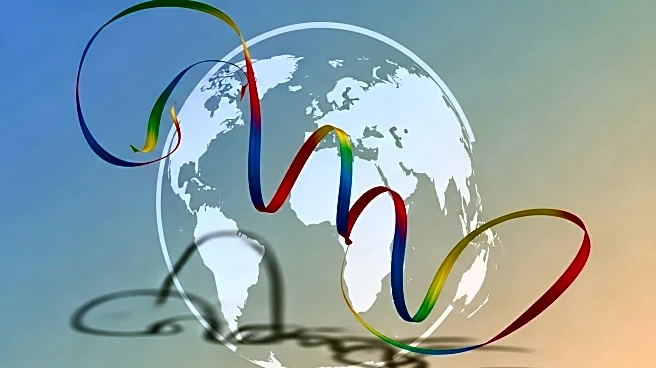What's Happening?
The International Gymnastics Federation (FIG) has acknowledged Indonesia's decision to deny visas to Israeli athletes for the upcoming world championships in Jakarta. The event, scheduled from October 19-25, has faced challenges due to Indonesia's refusal to host Israeli sports delegations, a stance rooted in its support for Palestinians. Despite assurances from Indonesian officials earlier this year, the participation of the Israeli team, including Olympic gold medalist Artem Dolgopyat, is now uncertain. The FIG expressed hope for a future where athletes can compete safely and peacefully, but did not threaten to relocate the event, as its statutes allow.
Why It's Important?
Indonesia's decision reflects broader geopolitical tensions and the impact of international conflicts on sports. The refusal to host Israeli athletes highlights the intersection of politics and sports, potentially affecting diplomatic relations and international sporting events. This move could influence other countries' policies regarding sports diplomacy and participation, especially in regions with similar political stances. The situation underscores the challenges faced by global sports organizations in maintaining neutrality and inclusivity amidst political disputes.
What's Next?
The FIG's response suggests a focus on creating a safe environment for athletes, but the lack of immediate action to relocate the event indicates potential diplomatic negotiations. Stakeholders, including the Israeli Gymnastics Federation and international sports bodies, may seek dialogue to resolve the issue. The situation could prompt discussions on the role of sports in political conflicts and the responsibilities of host nations in ensuring fair participation.
Beyond the Headlines
This incident is part of a larger pattern where sports events become arenas for political expression and conflict. The global backlash against Israel over the Gaza conflict has extended into sports, affecting athletes' opportunities and international relations. The decision may influence future hosting rights and the criteria for selecting host countries, emphasizing the need for sports organizations to navigate complex political landscapes.









